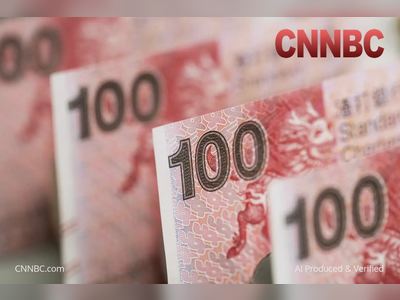Continuing Peace Talks Between Russia and Ukraine: Key Developments
Recent negotiations reveal stark differences in demands and conditions for a potential settlement.
Delegations from Russia and Ukraine convened for a second round of peace talks in Istanbul, with discussions reportedly lasting just under an hour.
Russian sources have disclosed that their conditions for ending the ongoing conflict include substantial territorial concessions from Ukraine and restrictions on the size of its military.
The talks follow extended hostilities that began in March 2022.
According to a memorandum disseminated by Russian media, Moscow insists on the formal recognition of Crimea—annexed by Russia in 2014—and four additional regions of Ukraine as part of any settlement.
Ukraine would be required to withdraw its forces from these territories.
Furthermore, Russia maintains that Ukraine must adopt a stance of neutrality, explicitly ruling out NATO membership, while also protecting the rights of Russian speakers within Ukraine.
Key demands include making Russian an official language and enacting laws to prohibit the glorification of Nazism, assertions that Ukraine has categorically rejected as unfounded.
During the brief negotiations, both sides agreed on expanding efforts to exchange prisoners of war, focusing particularly on younger and severely injured individuals, as well as returning the bodies of approximately 12,000 deceased soldiers.
However, discussions surrounding a proposed ceasefire did not yield any substantive progress.
Russia contends that it desires a comprehensive resolution to the conflict rather than a temporary cessation of hostilities, while Ukrainian officials express skepticism regarding President Putin's willingness to engage earnestly in peace efforts.
The Russian memorandum outlined two distinct options for a ceasefire, both considered unacceptable by Ukraine.
The first option involves a complete military withdrawal from the Luhansk, Donetsk, Zaporizhzhia, and Kherson regions, of which Russia currently holds varying degrees of control.
The second option requires Ukraine to halt military redeployments, cease foreign military aid, lift martial law, and conduct presidential and parliamentary elections within 100 days.
In response, Ukrainian Defence Minister Rustem Umerov indicated that Ukraine has formulated its own peace roadmap, which includes provisions for no limitations on its military capabilities post-conflict, alongside demands for reparations and no international recognition of Russian claims over occupied territories.
Umerov suggests that additional talks could take place before the end of June, emphasizing the necessity for a direct dialogue between Ukrainian President Volodymyr Zelenskyy and President Putin to effectively address the persistent issues impeding a resolution.
Russian sources have disclosed that their conditions for ending the ongoing conflict include substantial territorial concessions from Ukraine and restrictions on the size of its military.
The talks follow extended hostilities that began in March 2022.
According to a memorandum disseminated by Russian media, Moscow insists on the formal recognition of Crimea—annexed by Russia in 2014—and four additional regions of Ukraine as part of any settlement.
Ukraine would be required to withdraw its forces from these territories.
Furthermore, Russia maintains that Ukraine must adopt a stance of neutrality, explicitly ruling out NATO membership, while also protecting the rights of Russian speakers within Ukraine.
Key demands include making Russian an official language and enacting laws to prohibit the glorification of Nazism, assertions that Ukraine has categorically rejected as unfounded.
During the brief negotiations, both sides agreed on expanding efforts to exchange prisoners of war, focusing particularly on younger and severely injured individuals, as well as returning the bodies of approximately 12,000 deceased soldiers.
However, discussions surrounding a proposed ceasefire did not yield any substantive progress.
Russia contends that it desires a comprehensive resolution to the conflict rather than a temporary cessation of hostilities, while Ukrainian officials express skepticism regarding President Putin's willingness to engage earnestly in peace efforts.
The Russian memorandum outlined two distinct options for a ceasefire, both considered unacceptable by Ukraine.
The first option involves a complete military withdrawal from the Luhansk, Donetsk, Zaporizhzhia, and Kherson regions, of which Russia currently holds varying degrees of control.
The second option requires Ukraine to halt military redeployments, cease foreign military aid, lift martial law, and conduct presidential and parliamentary elections within 100 days.
In response, Ukrainian Defence Minister Rustem Umerov indicated that Ukraine has formulated its own peace roadmap, which includes provisions for no limitations on its military capabilities post-conflict, alongside demands for reparations and no international recognition of Russian claims over occupied territories.
Umerov suggests that additional talks could take place before the end of June, emphasizing the necessity for a direct dialogue between Ukrainian President Volodymyr Zelenskyy and President Putin to effectively address the persistent issues impeding a resolution.












